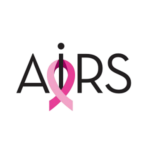By: Drew Reilly
Hello to all AIRS Foundation readers. My name is Drew Reilly. I am a 30-year-old BRCA 1 positive woman. I am writing today to share my experiences as a BRCA previvor and tell you my story. First, for those who might be unaware, genetically inheriting a BRCA1 or BRCA2 deleterious gene mutation substantially increases a woman’s lifetime risk of developing hereditary breast and ovarian cancer. Women identified with the BRCA1/2 gene mutation have been most recently estimated at a 55-65% risk of developing breast cancer and a 15-40% risk of developing ovarian cancer in their lifetimes. The lifetime risks for both breast and ovarian cancer for BRCA1/2 positive women far exceed the general population risk of 13% for breast cancer and 1.4% for ovarian cancer. These statistics were alarming to me, especially as a young woman with the BRCA gene. Women who are diagnosed may refer to themselves or others as “previvors.” The term means that women with the BRCA gene are pre-survivors of cancer, though I, and presumably other BRCA women, have owned the term to mean survivors of the trials that come along with such a diagnosis. I learned of my BRCA 1 diagnosis 5 years ago and my experiences thereafter prompted me to write my doctoral dissertation on the topic. I wanted to share a bit about my story and my research in hopes of spreading BRAC1 awareness.
My maternal grandmother died at the age of 24 of ovarian cancer, just 18 months after giving birth to my mother. Other than my mother, there are very few living female relatives on my maternal side. After I learned about the BRCA gene from my gynecologist at the age of 18, I urged my mother for almost seven years to get the BRCA genetic testing. She resisted because my grandmother was the only evidence of a possible genetic mutation. Five years ago, she finally agreed, and was shocked to find that she tested positive for the gene. After learning that my mother was BRCA 1 positive, I knew that I would have a 50 percent chance of having a positive result as well. After testing and a grueling two-week wait, I, sadly, found out that I also had the gene. My doctor called with the results and I could tell by the tone of his “hello” that I would be getting bad news.
I went the following week for my appointment with the doctor to discuss my options. I have spent the past five years under surveillance, which is one of the options for BRCA previvors. Every six months to one year, I get a variety of tests to check on the health of my breasts and ovaries to try to prevent or find cancer in the early stages. I also have the option of having prophylactic surgeries, such as mastectomy or oophorectomy to dramatically decrease my chances of breast or ovarian cancer. All of the decisions I have made regarding my preventative health have been personal and based on what I feel is best for myself and family. I am currently pregnant with my second child and plan to have both surgeries when our family is complete. I have struggled over the past five years through meetings with medical professionals that I felt did not understand, having procedures covered under insurance, and general anxiety around my times of surveillance testing. My own experiences paired with a general lack of information in the literature regarding the psychosocial affects of a BRCA diagnosis, pushed me to write my dissertation.
I interviewed five BRCA 1 and BRCA 2 positive women between the ages of 20-35 to help others understand what it might be like to be a young woman living with what feels like a ticking time bomb. I created a qualitative narrative study and was able to tell five previvors stories through a lens that both highlighted their unique struggles and aligned their common threads. It is my eventual hope to publish articles to fill the gaps in the existing literature so that medical professionals, families and friends of BRCA previvors might better understand their perspective. Though there has been more recent media attention on the BRCA gene, there are still gaps in the literature and women that may not be aware of their choices when they learn of their positive BRCA status. Through outreach at AIRS, it is my hope to educate the general population and empower and advocate for all women regarding their preventative health. Thank you for your attention!

